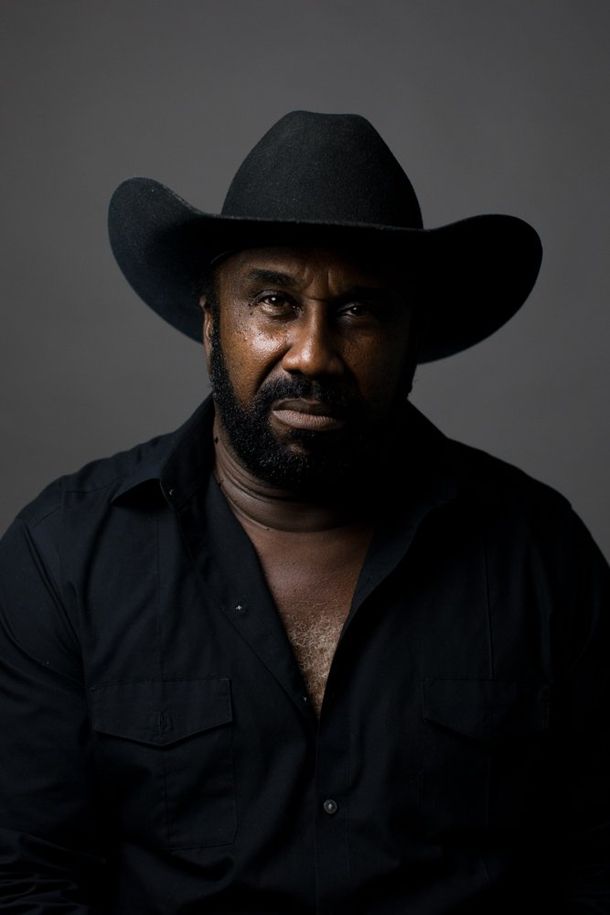Dr. John Boyd Jr. - Key Note Speaker
Founder & President of National Black Farmers Association
“I’m just a farmer from Virginia”
— If you ask John Boyd what he does for a living, he’ll tell you just that. In fact, John Boyd is a fourth-generation farmer, but how then did this farmer turn into a civil rights activist and become the President and founder of the National Black Farmers Association (NBFA)? The transition was personal and it happened quickly.
In the late 80’s, John applied, as many famers do, for a loan from the United States Department of Agriculture (USDA). He recalled watching his loan application get tossed into a trash can during an interview with a USDA official. After trying for multiple years to obtain a loan, he decided to fight back. Boyd filed a discrimination complaint through his local civil rights office. The money he needed to keep his farm alive was not forthcoming, his applications for other forms of farm assistance were disregarded, and routine inquiries about his loan balances and payment schedules went unanswered. Boyd spent the next several years relying on financial help from family members. His finances eventually spiraled out of control, he lost his poultry contract, and he was forced to declare bankruptcy.
John’s willingness to speak out and share his frustrations encouraged other desperate farmers to do the same. He began to hear story after story nearly identical to his own, and in some instances worse. As John has said, “I heard some terrible things, and the further south you go, the worse the story gets…It’s tough for all farmers, but when you throw in discrimination and racism and unfair lending practices, it’s really hard for you to make it.“ John’s efforts to settle his own complaint with the USDA led him to uncover an enormous backlog of unresolved discrimination cases, some dating back as far as the 1960s. In many instances, the discrimination was clearly documented and, more often than not, the problems could be traced directly to the agency’s thousands of local field offices.
By the spring of 1995, John knew he had to do something more to salvage his farm and those of his neighbors. With no existing organization to turn to, he had only one option: form one of his own. “The first time I said ‘National Black Farmers Association’ instead of ‘John Boyd,’ people came to the phone, even though at the time it was only me,” says John. Adopting the motto, “We have our mule, now we’re looking for our 40 acres,” a group of 60 farmers led by John, travelled to Washington, D.C. to make their voices heard. In December 1996, the 60 farmers converged on the White House to wage a boisterous, angry protest against a decades-old system of racial discrimination within the USDA. Among the issues discussed at an afternoon meeting between the farmers and U.S. Secretary of Agriculture Daniel Glickman were an end to farm foreclosures, the return of foreclosed land, and financial compensation for the thousands of farmers who had been denied essential loans because of their race. The White House rally and subsequent caucus helped bring the plight of African American farmers into the national spotlight.
The White House demonstration and impromptu meeting with Agriculture Secretary Glickman marked the first attempt by Boyd’s group to create a sense of solidarity among African American farmers. It also gave them the power to reclaim their rights and regain their land. One year later, following another White House rally, John and 15 other African American farmers met with President Bill Clinton to discuss the magnitude of the problems facing small, minority farmers. Ultimately, a lawsuit was filed on behalf of all black farmers and in January 1999, the USDA settled the suit – agreeing to pay $50,000 to each black farmer participating in the class action. Unfortunately, many farmers did not learn of the settlement until it was too late to participate, thus over 85% of potentially eligible farmers never even had the opportunity to have their claims determined on their merit. This led John on a new campaign – allow all black farmers the opportunity to have their claims heard.
In addition to his work on getting black farmers an opportunity to have their claims heard, John was an early supporter of then-Senator Barack Obama during the 2008 Democratic presidential primaries. He played an important role organizing African American voters in the critical South Carolina primary. During the primaries Boyd also organized supporters and spoke at events in Alabama, Georgia, and Mississippi. Boyd organized supporters and spoke at events for Obama in important battleground states during the general election including Florida, North Carolina and Virginia.
After nearly a decade of work –from door-to-door canvassing, to conversations on Capitol Hill, and multiple times before Congress, John Boyd was instrumental in securing the biggest Congressional victory in history for black farmers, new legislation within the 2008 Farm Bill that effectively reopened the government’s discrimination settlement with black farmers. John and the NBFA were one of the first to the courthouse steps, initially filing suit on behalf of over 800 farmers. The suit was filed as a result of the new legislation, however while that “opened the door” with “placeholder” funds, more funds are needed to fully address the literally tens of thousands of black farmers who suffered discrimination at the hands of their own government.
After waiting over a year for more funds to be allocated John decided to take his fight to Washington, D.C.. On April 28, 2009, John led a protest which began in front of USDA headquarters and culminated in a march down Independence Avenue with John’s trusty mule, “40 Acres,” leading the way. The demand of the farmers was clear – appropriate enough money to give the farmers a chance to have their claims heard. One week later, President Obama proposed that the government provide $1.25 billion to settle the discrimination claims. These funds were in the President’s 2010 budget, it was the President hope that, “…the farmers and their families who were denied access to USDA loans and programs will be made whole and will have the chance to rebuild their lives and their businesses.“ The money was never placed by Congress in the budget.
On February 6, 2010 John is beginning a seven state campaign starting in Arkansas, going through Tennessee, Mississippi, Alabama, Georgia, South Carolina, and Virginia. The campaign will end with a rally in front of USDA headquarters on Presidents’ Day, Monday, February 15, 2010. The purpose of the rallies are to motivate the Congress to do what the President asked them to do – give the farmers a chance to rebuild their lives and their businesses by properly appropriate enough money to allow the farmers to finally have their claims determined on their merits.
John Boyd remains a tireless advocate for farmers. He spends most of his time in Baskerville, Virginia running his farm with the help of family – his other time is spent in Washington, D.C. where he has been a constant voice for change.
Accomplishments:
In his role with the National Black Farmers Association, John has worked closely with national leaders in government, agriculture organizations and rural groups nationwide including:
Present, Farmer and President of the National Black Farmers Association;
2009, Appointed by Virginia Governor Bob McDonnell to serve on his Agriculture transition team;
2009, Vetted by President Obama’s transition team as a candidate for Secretary of Agriculture;
2005, Appointed by then-Virginia Governor-elect Tim Kaine to serve as co-chair of his Policy Committee on Agriculture and Forestry during the transition period;
2005, Recipient of the Legacy of Excellence “Keeper of the Flame” Award;
2000, Appointed by President Bill Clinton to serve on his administration’s tobacco commission;
2000, Democratic nominee for election to Virginia’s 5th Congressional District;
1999, Appointed by then-Virginia Governor Jim Gilmore to serve on the Virginia Tobacco Indemnification and Community Revitalization Commission;
1998, Nominee for the NAACP highest honor, the Springarn Award;
1995, Founded the National Black Farmers Association.
His fight for farmers has been chronicled by in various ways by the media. He has been featured in The Washington Post, “60 Minutes,” “Nightline,” CNN and as ABC News Tonight’s “Person of the Week.“ He is a past nominee for the NAACP’s highest honor, The Springarn Award, and consistently ranks as one of Ebony Magazine’s most influential African-Americans. He has made numerous appearances before Congress in his fight for farmer and agricultural issues.
Boyd led the lobbying effort on the Black farmers legislation passed by Congress and signed into law by President Obama. His work ensured passage of the Cobell Native American trust fund case that passed at the same time. The combined civil rights settlements exceeded $4.5 billion together.New Paragraph


